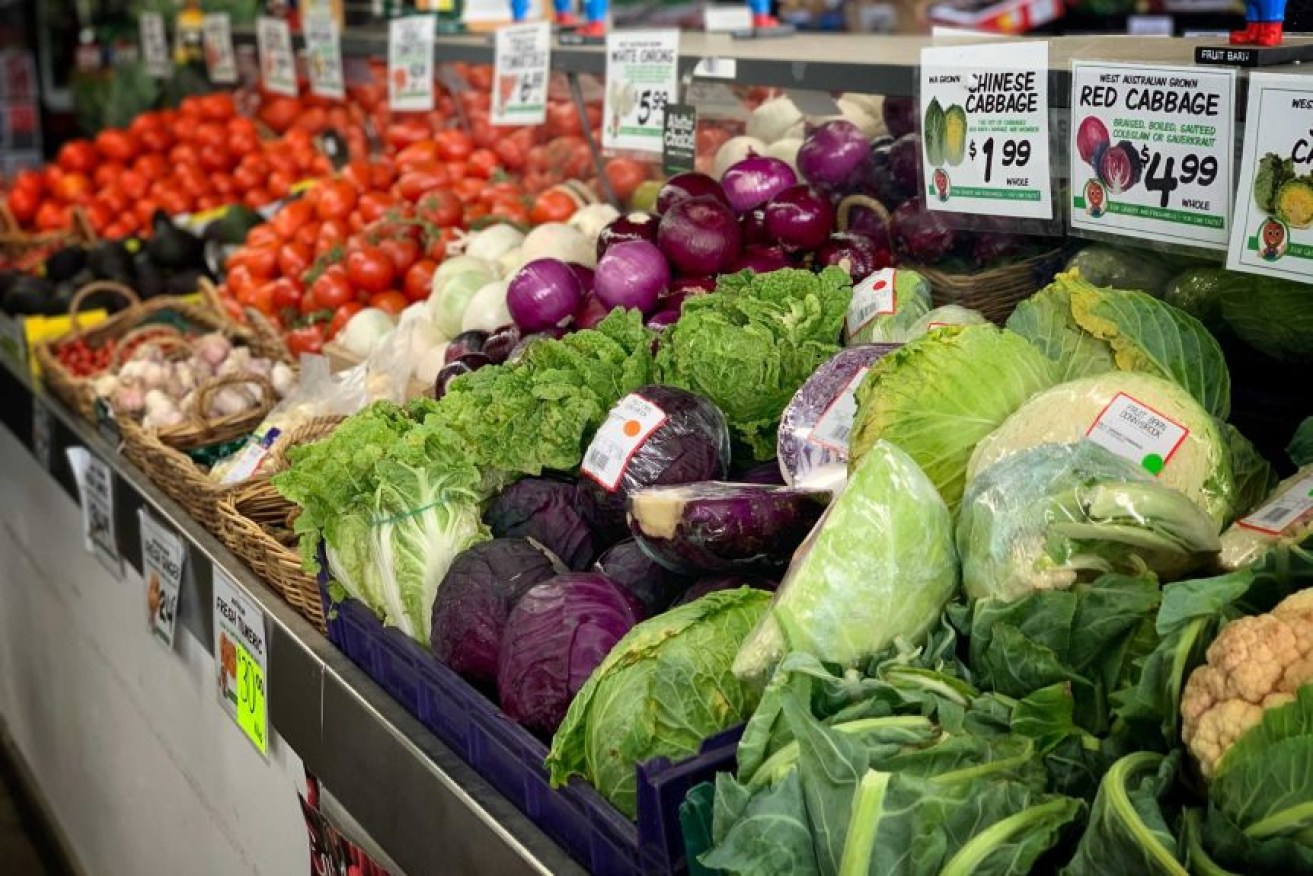Fruit and vegetable prices remain stable despite labour shortages


Vegetables have also dropped in price throughout the year. Photo: Getty Photo: Getty
Grocery prices remained relatively stable over the past 12 months despite fears the labour shortage on Australian farms would spur huge hikes, The New Daily can reveal.
For more than 12 months headlines predicted doomsdays prices for shoppers as ongoing COVID restrictions kept out migrant workers.
In August last year, the Australian Fresh Produce Alliance warned fruit and vegetable prices could jump by as much as 60 per cent – and a report by the Australian Bureau of Agricultural and Resource Economics and Sciences (ABARES) in March said they would climb by up to 29 per cent.
But industry analysts said fruit and vegetable prices increased by no more than 4 per cent last financial year, while noting it was impossible to discern how much of that was down to the labour shortages.
It came as the Morrison government announced its new visa scheme for the horticulture sector would be running within weeks, despite concerns that the new program lacked the necessary safeguards to protect migrant workers.
IBISWorld senior industry analyst Matthew Reeves said the fear mongering over fruit and vegetable prices during the pandemic had been misplaced.
“The data bears out a different story. We didn’t reach those levels that were touted,” he told The New Daily.
“If we’re looking at financial year numbers, over the past two years, fruit prices have grown about 4 per cent a year, and vegetables about 2.5 [per cent] a year,” he said.
“There’s a lot of volatility across fruit and vegetables. In the five years prior to COVID, fruit prices have gone up 2.5 [per cent] a year.”
Although the labour shortage may have had some effect on prices over the past 12 months, Mr Reeves said the extra two percentage points could not be attributed solely to that.
“When COVID was starting we had the impact of the bushfires, which caused harvest and supply chain disruptions. That would play into it,” he said.
“Other factors do play a part.”
Dr Michael Callaghan, lecturer in ethics and sustainability at Deakin University, said it was important to look at the big picture.
He said the overall cost of food had increased by less than 1 per cent between June 2020 and June 2021.
“Fruit and vegetables always fluctuate so I’m not convinced price fluctuations, or increases in price, are the direct result of what we’re seeing right now,” Dr Callaghan said.
Part of the horticulture industry’s argument to bring in a dedicated agriculture visa, as announced by the federal government on Monday, was that it would fill a hole in the supply of labour and keep a lid on prices.
The Morrison government said it would come into effect at the end of September and help fill COVID-induced labour shortages across farming, fisheries and forestry.
Questions remain
Industry groups welcomed the news, with AUSVEG CEO Michael Coote saying it was “a welcome step towards securing an efficient and reliable workforce”.
“AUSVEG has been calling for an agriculture visa for many years to address the industry’s worker shortage and to help ensure that fruit and vegetable businesses can access a reliable and efficient workforce,” Mr Coote said.
The pandemic has exposed the terrible working conditions on many farms, with some workers needing to supplement their meagre incomes with JobSeeker while they are on the harvest trail.
Dr Callaghan said the visa would therefore fail to address the main cause of the labour shortages.
“These [agriculture] businesses are refusing to pay a decent wage,” he said.
“Australians won’t work for slave labour.”
Dr Callaghan said the supermarkets were squeezing everyone and this affected conditions for the pickers.
“They can fix it, but why fix it when they can exploit people from another country?”
Where are the safeguards?
In its Monday press release, the federal government promised to “design the visa to ensure a high degree of integrity and safeguards for workers”.
TND requested more information from DFAT, which was the listed media contact on the release, but was told the deadline could not be met and then referred to the Department of Home Affairs.
Dr Joanna Howe, one of Australia’s eminent experts in labour force issues affecting the horticulture industry, said it was “very concerning” that the government had yet to confirm the visa’s safeguards only a month before its scheduled launch date.
She said the south-east Asian migrants at whom the visa is aimed are more vulnerable to exploitation.
“We know in that cohort there are specific challenges with security. We know there are existing problems in the horticulture industry,” Dr Howe said.
“The failure to announce safeguards and the fact it’s beginning in four weeks’ time – it raises concerns.”








